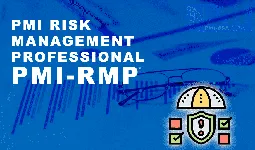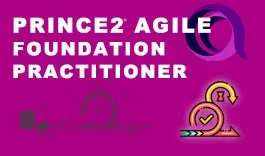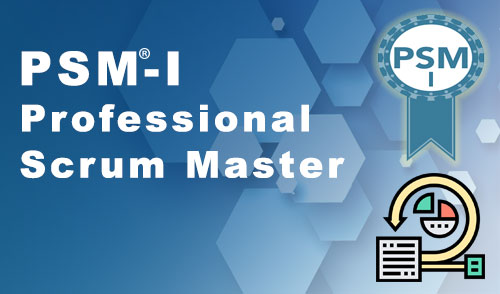Scrum Master Salary Trends in 2024
-
 By Niharika Chaurasia
By Niharika Chaurasia - Published on Oct 10 2023

Table of Contents
- Demand for Scrum Masters
- Scrum Master Job Role and Responsibilities
- Key Skills and Qualities of a Scrum Master
- Scrum Master Salary Based on Location
- Salary Differences Based on Job Levels
- Impact of Experience on Salary Expectations
- Importance of Scrum Master Certification
- Future and Job Trends for Scrum Masters
- Conclusion
- FAQ
Demand for Scrum Masters
As organizations embrace agile methodologies and adopt Scrum practices, the role of a Scrum Master has gained significant importance. Scrum Master acts as a facilitator, helping teams embrace and implement Scrum principles effectively. They are the champions of agility, ensuring smooth collaboration, efficient processes, and continuous improvement within the team.
The Scrum Master plays an important role in helping the team deliver high-quality products by removing obstacles, promoting a culture of self-organization, and encouraging self-organization. Scrum Masters contribute to the success of projects by ensuring on-time delivery, mitigating risks, and streamlining the workflow with their knowledge of Scrum frameworks and agile practises.
Understanding the salary trends for Scrum Masters in 2024 is of paramount importance for both professionals and organizations. It provides insights into the value placed on this role and helps professionals make informed decisions about their career paths. For organizations, knowledge of salary trends allows them to attract and retain top Scrum Master talent and ensure they offer competitive compensation packages.
In this article, we'll examine the professional Scrum Master Salary trends for 2024, looking at variables including region, job function, experience, and certifications. We will also examine work trends and the Scrum Master's future, emphasising the value of keeping ahead of market changes. So, let's dive in and uncover the fascinating world of Scrum Master Salaries in 2024.
Scrum Master Job Role and Responsibilities
A Scrum Master plays a crucial role in enabling agile project management and ensuring the successful delivery of projects. They act as facilitators, coaches, and leaders, guiding the Scrum team and stakeholders throughout the development process.
The Scrum Master has several key responsibilities to fulfill:
Facilitating Scrum Events
They organize and facilitate essential Scrum events, including daily stand-up meetings, sprint planning, sprint reviews, and retrospectives. Their goal is to ensure these events run smoothly, fostering effective communication and collaboration among team members.
Removing Obstacles
Scrum Masters act as problem solvers, identifying and removing any obstacles or roadblocks that hinder the progress of the Scrum team. They ensure a conducive environment for the team to focus on project tasks and meet sprint goals.
Team Support and Coaching
Scrum Masters provide guidance and support to the Scrum team, promoting self-organization and continuous improvement. They assist team members in understanding and implementing agile principles and practices, helping them adapt to changing requirements.
Key Skills and Qualities of a Scrum Master
To excel in the role of a Scrum Master, certain skills and qualities are essential:

Effective communication is vital for a Scrum Master to facilitate discussions, encourage collaboration, and resolve conflicts within the team. They must possess excellent listening and facilitation skills to foster a productive and transparent work environment.
Scrum Masters adopt a servant leadership approach, putting the needs of the team above their own. By aiding the group in decision-making, they enable people to assume responsibility and ownership for their job. A Scrum Master should embrace the agile mindset and be well-versed in agile methodologies. To effectively lead the team, they have to understand the Scrum values, tenets, and practises.
Being open to learning and adapting is crucial for a Scrum Master. They must keep up-to-date on agile methodologies, experiment with novel tools and methods, and look for chances to advance both personally and professionally.
Scrum Masters play a crucial role in promoting teamwork, raising team output, and producing high-quality products. Their diverse skill set and dedication to agile principles make them invaluable assets in organizations embracing agile methodologies.
Scrum Master Salary Based on Location
One of the key factors that influence Scrum Master Salaries is the geographical location in which they work. Salaries can vary significantly based on the region and city, considering factors such as cost of living and demand for agile professionals. Let's explore how average Scrum Master Salaries differ across different locations:
Comparison of average Scrum Master Salary in different regions and cities:

Note: The salary ranges mentioned above are approximate figures and can vary based on factors such as experience, qualifications, company size, and specific location within the region.
Salary Differences Based on Job Levels
Scrum Masters often have different job levels within organizations, such as Junior Scrum Master, Senior Scrum Master, and Lead Scrum Master. These job levels can have an influence on salary ranges.
A Senior Scrum Master Salary is higher than the junior scrum master salary because as they move up the job ladder, their responsibilities and expectations increase, which can result in higher compensation.
According to recent industry surveys, the Scrum Master pay on average annually for different job levels are as follows:

These salary ranges can vary based on factors such as location, industry, company size, and demand for Scrum Masters.
Impact of Experience on Salary Expectations
Experience plays a crucial role in determining salary expectations for Scrum Masters. With more years of experience, Scrum Masters become more skilled, knowledgeable, and capable of managing challenging projects, which can result in increased pay.
The following chart illustrates the typical wage path for Scrum Masters based on years of experience:

These figures are approximate and can vary depending on factors such as location, industry, certifications held, and the demand for experienced Scrum Masters in the job market.
Understanding the salary differences based on job levels and the impact of experience can help Scrum Masters negotiate competitive compensation packages and make informed decisions about career progression.
Importance of Scrum Master Certification
In today's competitive job market, Scrum Master certifications hold significant value and provide professionals with a competitive edge. These certifications validate an individual's expertise in agile methodologies, Scrum framework, and effective team collaboration.
Employers often prioritize candidates who hold Scrum Master Certifications, as it demonstrates their commitment to professional growth and their ability to drive successful agile projects.
The certified scrum master salary is significantly higher as compared to the non-certified counterparts, with an average salary difference of 20% or more.
There are several well-recognized Scrum Master Certifications that professionals can pursue to enhance their career prospects. These certifications include:
Certified Scrum Master (CSM)
Provided by Scrum Alliance, the CSM certification is well-known and focuses on the core principles of Scrum. It gives professionals the know-how and abilities to work well as Scrum Masters and support the success of agile teams. CSM certification salary is another reason for the professionals to get certified with CSM certification which is comparatively higher than the non-certified scrum masters.
Professional Scrum Master (PSM)
Provided by Scrum.org, PSM certification offers a rigorous assessment of a candidate's Scrum knowledge and practical application. It validates a deeper understanding of Scrum principles and prepares professionals to excel as Scrum Masters in complex environments.
Agile Certified Practitioner (PMI-ACP)
Offered by the Project Management Institute (PMI), PMI-ACP certification encompasses various agile methodologies, including Scrum. It demonstrates a professional's versatility in agile practices and their ability to lead agile teams effectively.
These certifications offer several benefits, such as increased credibility, broader career opportunities, and access to a global community of agile professionals. They provide individuals with the necessary tools and frameworks to excel in their Scrum Master roles and contribute to the success of agile projects.
Future and Job Trends for Scrum Masters
The demand for Scrum Masters is on the rise as organizations adopt agile methodologies. Here are the future trends and job opportunities for Scrum Masters:
Growing Demand in Various Industries: Scrum Masters are highly sought-after professionals as they drive agile transformations. The demand for Scrum Masters is projected to grow by 24% in the next five years.
Emerging Trends in Agile Project Management
Scaling Agile: Scrum Masters will lead the scaling efforts, coordinating multiple teams and aligning strategies.
Agile Transformation Coaching: Experienced Scrum Masters provide guidance and mentorship during agile transformations.
Agile in Non-IT Industries: Agile methodologies are expanding beyond IT sectors, creating new opportunities for Scrum Masters.
Remote Agile: Scrum Masters adept at leading virtual teams will be in high demand.
Data-Driven Agile: Scrum Masters with data analytics skills can drive data-driven decision-making and continuous improvement.
Staying updated on these trends and acquiring relevant certifications will enhance career prospects for Scrum Masters.
Conclusion
In conclusion, the Scrum Master role is vital in driving successful agile projects. We explored the factors influencing Scrum Master salaries, including location, job role, experience, and certification. Certified Scrum Masters are highly sought after and command higher salaries in the job market.
A certified Scrum Master opens up exciting career opportunities and higher earning potential. Sprintzeal offers top-notch Scrum Master Certification courses that provide the necessary skills and knowledge to excel in this role.
Take the next step in your professional journey by enrolling in Sprintzeal's Scrum Master Courses today. Invest in your future and join the thriving community of successful Scrum Masters. Visit our website now and explore our comprehensive Agile management courses. To explore more about scrum and agile related information, visit sprintzeal blog page.
FAQ
Is Scrum Master a high paying job?
Scrum Master salaries can vary depending on location and experience, but they are generally competitive and can be considered high paying in the IT industry.
What is the salary of a 7-year Scrum Master?
The salary of a 7-year Scrum Master can vary significantly based on factors such as location, company, and industry. However, they can earn a substantial income, often above the average for IT professionals with similar experience.
Is Scrum Master an IT job?
Yes, Scrum Master is typically considered an IT or technology-related job. However, Scrum principles and practices can be applied in various industries beyond IT.
Subscribe to our Newsletters
Popular Programs
PSM® - Professional Scrum Master Certification
Live Virtual Training
- 4.2 (75 + Ratings)
- 16k + Learners
Trending Posts
Scrum Interview Questions and Answers 2024
Last updated on Feb 12 2024
DevOps Vs Agile Differences Explained
Last updated on Nov 18 2022
A guide to Agility in cloud computing
Last updated on Mar 14 2023
Product Life Cycle Model: A Guide to Understanding Your Product's Success
Last updated on Oct 11 2023
Agile Coaching Guide - Best Skills for Agile Coaches
Last updated on May 24 2023
Stakeholder Engagement Levels Guide
Last updated on Sep 16 2024
Categories
- Agile Management 54
- AI and Machine Learning 42
- Big Data 53
- Business Management 50
- Cloud Computing 44
- Digital Marketing 55
- Information Security 7
- IT Hardware and Networking 16
- IT Security 103
- IT Service Management 29
- Leadership and Management 1
- Microsoft Program 2
- Other 40
- Programming Language 31
- Project Management 162
- Quality Management 74
- Risk Management 8
- Workplace Skill Building 2
Trending Now
List Of Traits An Effective Agile Scrum Master Must Possess
ArticleDevOps Vs Agile Differences Explained
ArticleDevops Tools Usage, and Benefits of Development Operations & VSTS
ArticleAgile Scrum Methodology - Benefits, Framework and Activities Explained
ArticleGuide to Agile Project Management 2024
Article10 best practices for effective DevOps in 2024
ArticleGuide to Becoming a Certified Scrum Master in 2024
ArticleWhy Should You Consider Getting a Scrum Master Certification?
ArticleCSM vs CSPO: Which Certification is Right for You?
ArticleAgile Manifesto - Principles, Values and Benefits
ArticleAgile Methodology Explained in Detail
ArticleAgile Project Management Explained
ArticleEssential Tools for Agile Project Management 2024
ArticleEverything about Scrum Methodology
ArticleScrum Workflow - A Step by Step Guide
ArticleLatest Agile Interview Questions and Answers To Look For In 2024
ArticleScrum Interview Questions and Answers 2024
ArticleTop Scrum Master Responsibilities 2024 (Updated)
ArticleProduct Life Cycle in Marketing: Essential Strategies for Product’s Success
ArticleDevOps Engineer Interview Questions - Best of 2024
ArticleDevOps Engineer - Career path, Job scope, and Certifications
ArticleBusiness Agility Guide - Importance, Benefits and Tips
ArticleScrum vs Safe – Differences Explained
ArticleCSM vs. PSM - Which Scrum Certification is Better?
ArticleSAFe Implementation Roadmap Guide
ArticleAgile Release Plan Guide
ArticleAgile Environment Guide
ArticleAgile Coaching Guide - Best Skills for Agile Coaches
ArticleAgile Principles Guide
ArticleSAFe Certifications List - Best of 2024
ArticleAgile Prioritization Techniques Explained
ArticleScrum Ceremonies Guide
ArticleProduct Owner Certifications List
ArticleScrum of Scrums Guide
ArticleWhat is DevSecOps and its Importance
ArticleData Processing - A Beginner's Guide
ArticleDevOps Career Guide 2024
ArticleStakeholder Engagement Levels Guide
ArticleScrum Master Career Path Explained
ArticleScrum Career Path Explained
ArticleTop Git Interview Questions and Answers [Updated 2024]
ArticleA guide to Agility in cloud computing
ebookProduct Roadmap: An Ultimate Guide to Successful Planning and Implementation
ArticleDMAIC Methodology - The Ultimate Guide
ArticleProduct Life Cycle Strategies: Key to Maximizing Product Efficiency
ArticleProduct Life Cycle Model: A Guide to Understanding Your Product's Success
ArticleWhat is a Product Owner - Role, Objectives and Importance Explained
ArticleSuccessful Product Strategies for Introduction Stage of Product Life Cycle
ArticleUnlocking Career Opportunities in Product Management: Your Roadmap to Success
ArticleSaturation Stage of Product Life Cycle: Complete Guide
ArticleCutting-Edge Technology of Google Cloud
ArticleHow to Write an Executive Summary for a Business Plan?
ArticleImportance of Procurement Management Software in Modern Business
Article


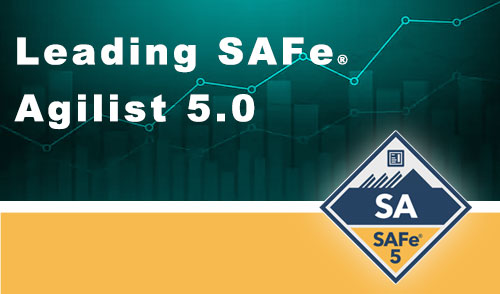

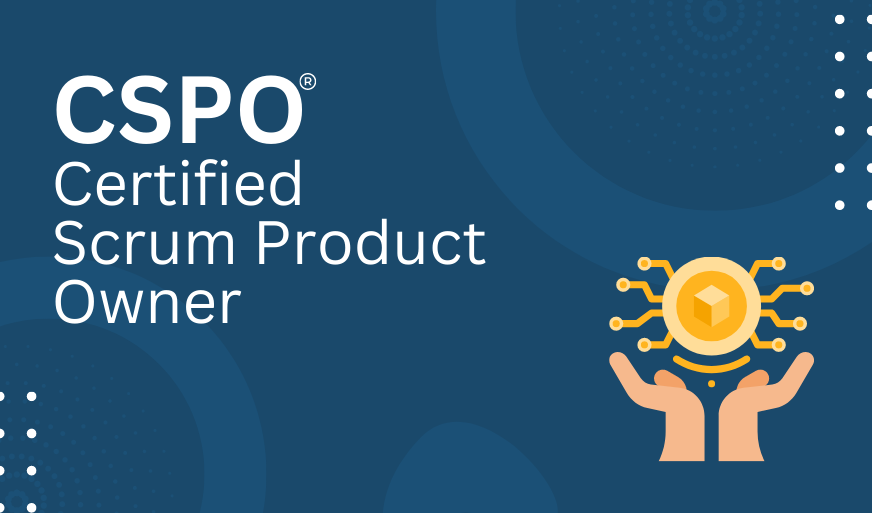
.webp)

